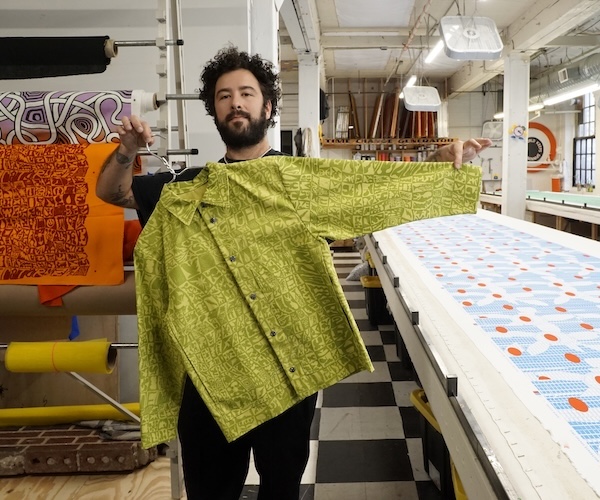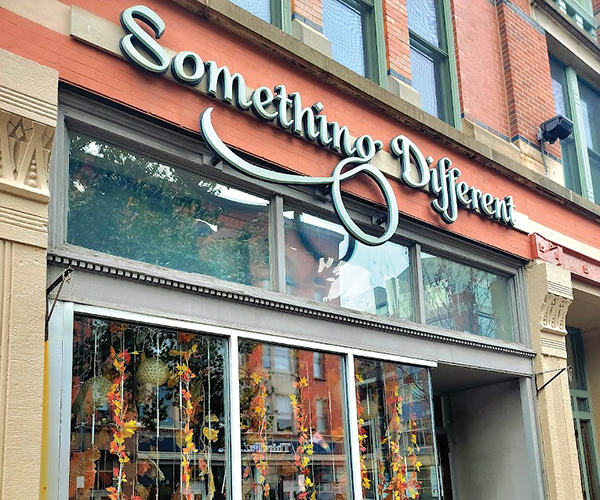Long-term Lending
by Chrissy Kadleck | Jul. 27, 2005 | 4:00 AM
How many times have you dreamed of making your last mortgage payment — finally living in your home, free and clear? No monthly payment. No more juggling of unexpected expenses or worry about getting the payment in on time.
What if you could feel that way right now? Well, if you are 62 or older, you have earned the fiscal right to have your house pay you for a change.
This financial flip-flop is aptly called a reverse mortgage and is essentially just that — a unique loan that enables older homeowners to convert a portion of their home's equity into tax-free income without having to sell the home or make any monthly repayment.
"It originally was designed for folks who were house rich and cash poor," says Charles Pappadakes, president of Excel Mortgage Corp. in Independence, which specializes in reverse mortgages. "They only make one repayment and that repayment comes when they sell the house."
The age of the homeowner and the value of the home are the two defining factors in determining the amount of a reverse mortgage.
"It is the coolest product out there in the mortgage industry," says Tony Palmieri, a reverse mortgage specialist with Wells Fargo Senior Products Group. "Where else can you go and borrow equity from your house, qualify only by your age and have money for the rest of your life with no monthly payments? There is nowhere else you can do it."
The older the homeowner, the greater the percentage of equity he or she can tap into through the reverse mortgage. "A general rule of thumb is if you take your age and you subtract five years that will give you an idea of what percentage of your house you could take out," he says. "If you were 65 that would be 60 percent which with a $100,000 home, would amount to $60,000."
And unlike all other loans, reverse mortgages don't hinge on a borrower's income or credit history, says Steve Weixel, president of ABC Mortgage Corp. in downtown Cleveland.
"You could have disastrous credit history, no income, but if you had a home that was owned free and clear (or even with a mortgage) it's a way to not only access the cash and still be free of any mortgage payments," Weixel says.
The money, which does not count as income or affect Social Security or Medicare benefits and eligibility, can be taken as a lump sum, a monthly payment or a credit line. After the 45 to 60 days it takes to close the loan, the acquired money can be used for anything the homeowner decides, including daily living expenses, house repairs, health and medical needs, to pay off debts or even to travel and enjoy life.
"[Many seniors] don't realize that they are living inside this invisible piggy bank. This is the generation that paid off their mortgage; burned their mortgage. They were told by their parents to pay off their house and never have debt," says Palmieri, who does anywhere from seven to 10 reverse mortgages a month. "This program is one that will pay them money over a period of time or whatever, yet they are going to have a balance against their house so it goes against what they have been taught their entire life."
An important caveat of the reverse mortgage is that, in most cases, if the homeowner has a current mortgage or home equity loan, those liens must be paid off first. For instance, using the earlier example of a $100,000 home — if the loan would allow you to draw out $60,000 in equity but you still owed $30,000, you would have to pay off the existing loan, leaving you with $30,000.
There is no question reverse mortgages are growing in popularity, says Pappadakes, whose mortgage company last year completed 200 loans and is projecting a jump to 350 loans this year. Nationally there has been a nearly 500 percent growth in origination volume from 2001 to 2004.
"There is a much more sophisticated use that has been evolving where people actually are using [reverse mortgages] more as a financial planning technique," Pappadakes says. "They might use it for legacy building or use the proceeds to buy insurance policies, they use it to preserve their other liquid assets like mutual funds, stocks and bonds • until it is more advantageous to sell."
One of the drawbacks to reverse mortgages is that it reduces the amount of a person's estate, yet with fairly low adjustable interest rates and safeguards that ensure that the loan amount cannot exceed the value of the home, it can be a valuable financial tool for cash-strapped homeowners who plan to stay in their home for several more years.
"You are going to have less money to leave your heirs because you are using some of your equity now to enjoy your life, but the good news is, in our experience, the vast majority of children are supportive of this for their families," Pappadakes says.
Unlike when you take a regular loan such as a 30-year, reverse mortgages do not have a maturity date, or time when the loan must be paid in full. These loans have what is called a maturity event, Pappadakes says.
You have to pay off the loan if one of the following happens: you pass on, you voluntarily want to sell your house, it's no longer your primary residence, you are out of work for more than 12 months for mental of physical illness, you no longer maintain the home or you stop paying insurance on it.
"So long as one of those things doesn't happen, it doesn't matter if you live to be 105, 110, 115 years old, you never have to pay us off," Paddadakes says.
In the event that the house is sold and the loan is repaid, any remaining money belongs to the homeowner or the estate.
Concerned that the reverse-mortgage concept might be potentially complicated or confusing for homeowners when it authorized the loans in 1987, Congress made it a requirement that you receive counseling with a nonprofit government-approved agency if you wanted to participate in what's now the most popular program, the Home Equity Conversion Mortgage, or HECM, administered through the U.S. Department of Housing and Urban Development, Pappadakes says.
"It's a great safety net for people," Palmieri says. "This is not a product that is widely known or understood, and this is a way for that senior to realize that what I am telling them is the truth and it allows them to ask an unbiased third party anything they want."
The counseling requirement hasn't seemed to scare away too many consumers.
"Nationwide, 97 percent of folks take the FHA-HUD-backed product and in Ohio it's probably closer to 99 percent," he says. "The benefit to FHA is that it is government guaranteed, it has the lowest interest rate and it is also significantly more generous ab out how much money it would offer you."
For homeowners considering a reverse mortgages, Palmieri offers this tip: Deal with a specialist. "Look for a company that you know, and find a specialist that you feel comfortable with. This is a huge leap of faith for many seniors and they need to be with someone they trust."
Trending
-
1
-
2
-
3
-
4
-
5










